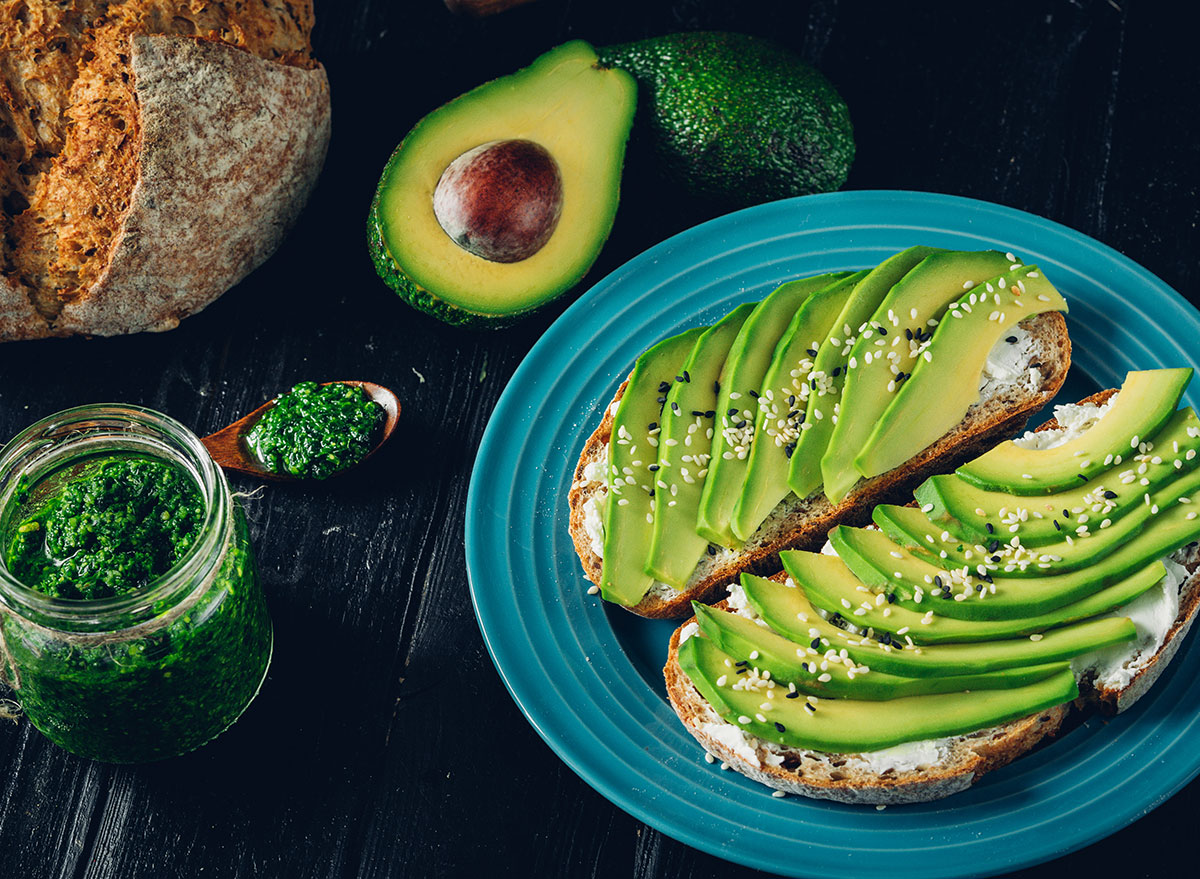If you're looking to lose weight around the middle, your new bestie may be the avocado.
Professors at the University of Illinois Urbana-Champaign gathered 105 adults who were classified as either overweight or obese. The participants in this randomized controlled 12-week trial were divided into two groups: One group was provided with a daily meal that included an avocado while the other group's daily meal did not include avocado, although it did contain a food that comprised similar ingredients and caloric value.
The researchers measured the volunteers' abdominal fat, as well as their glucose tolerance (a test that measures the body's response to sugar, which is a marker of diabetes) at the beginning and end of the study.
RELATED: What Happens to Your Body When You Eat an Avocado
According to their findings, which were published in the Journal of Nutrition, the females who consumed an avocado daily showed a reduction in visceral abdominal fat—the hard-to-lose, dangerous fat that stores within the abdominal cavity and surrounds the organs—along with a reduction in the ratio of visceral fat to subcutaneous fat (the type of fat that you can pinch since it lays directly beneath the skin). This shift suggests there was a beneficial redistribution of belly fat.

However, the male participants were not as fortunate. The authors reported that no changes occurred within their abdominal fat and neither male or female volunteers showed improvements in their glucose tolerance. As a result, the researchers are hoping to conduct further studies in order to explore the connections between avocado consumption and metabolic health. It also should be noted that this study was funded by the Hass Avocado Board.
"I'm not surprised to learn that avocados are associated with a lower rate of visceral fat storage," says Jessica Marcus, MS, RD, health coach at Parsley Health. She explains that even though avocados are high in fat, they're also low in carbs and rich in fiber.
"Fiber is associated with weight loss and reduced blood sugar spikes," she continues. "Plus, we know from studies on ketogenic diets that this combination of high-fat and high-fiber is powerfully satiating, which not only makes you less likely to overeat later in the day but also turns on your ability to burn your body's own fat for fuel."
RELATED: Popular Foods With More Fiber Than Oatmeal
Marcus points to other nutritional benefits of this centuries-old bright green fruit, such that it's a nutrient-dense whole superfood, loaded with antioxidants and phytochemicals. "We are only just beginning to understand how these plant chemicals impact our genetic expression," she says.
If you're looking to add this versatile, buttery-tasting food into your daily diet, consider making homemade guacamole or try your hand at making avocado toast. "A few of my favorite ways to incorporate avocados are to enjoy a one-quarter or one-half of an avocado sliced into a salad, blended into a smoothie, or smashed with a can of wild salmon and seasoning for a quick lunch," suggests Marcus.
Now, be sure to read, What Eating Avocado Toast Does To Your Body, According to Science. Then, to get healthy tips delivered straight to your inbox, sign up for our newsletter!
One Major Effect of Eating Avocados, Says New Study | Eat This Not That - Eat This, Not That
Read More

No comments:
Post a Comment